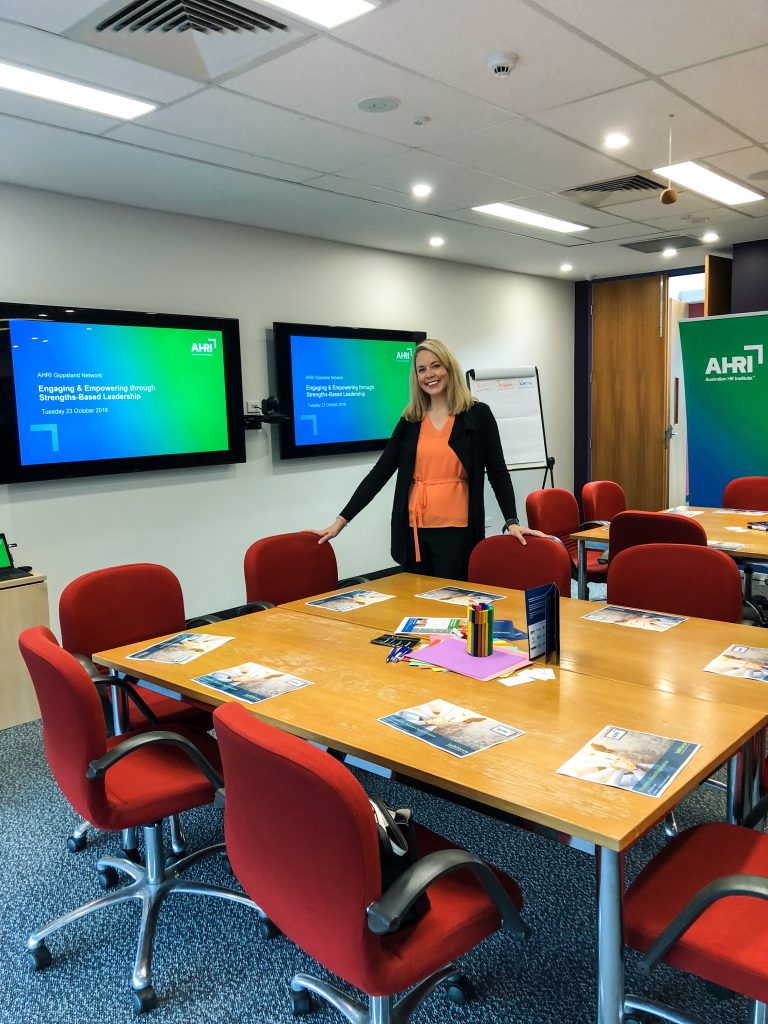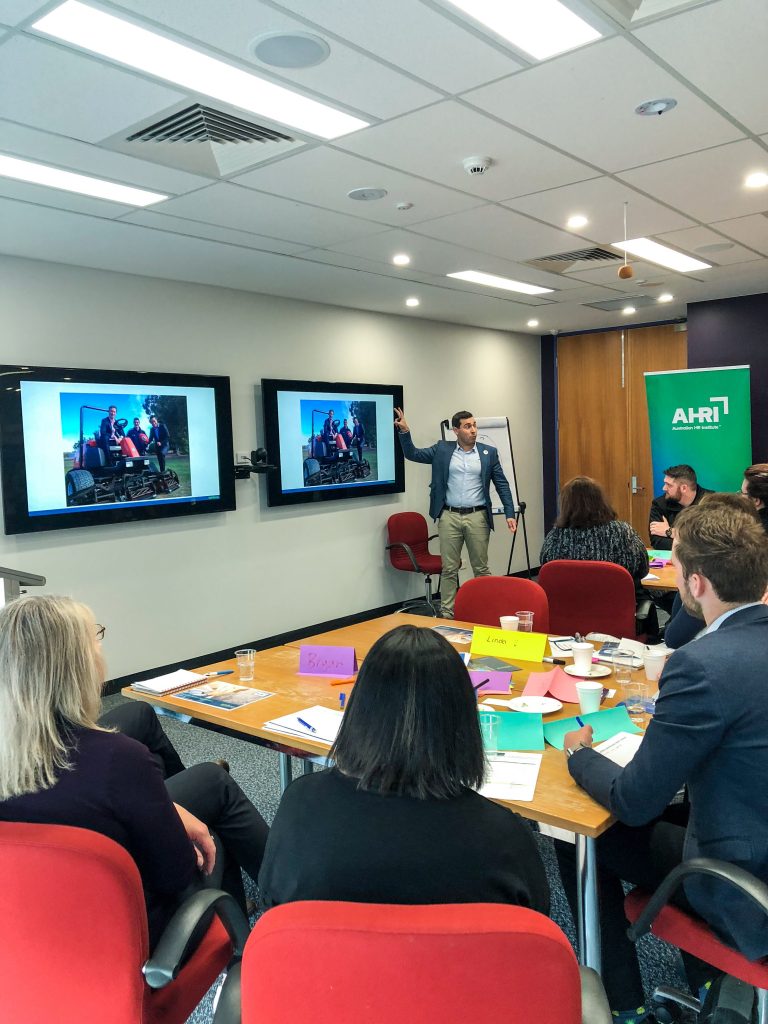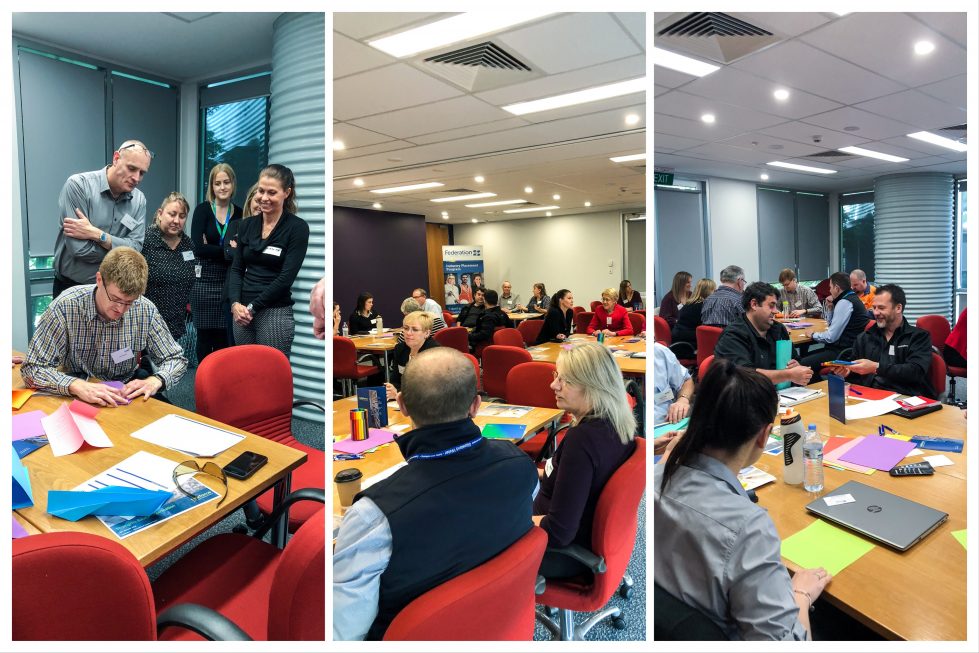
Pictured: Kim Singline, talkforce associate
Recently our Melbourne based talkforce team partnered with AHRI in the Gippsland region to deliver a Strengths-Based Organisations (SBO) and Strengths-Based Leadership (SBL) workshop. With over 50 business leaders and HR professionals from throughout the Gippsland region attending, the conversation was dynamic and insightful.
Kim Singline, a talkforce associate and practising psychologist, set up the session by dissecting the generational shift in how workplaces have evolved. From the baby-boomer generation of 1-2 career jobs, hierarchical working environments, a top-down management approach and the default leadership style of command and control. To today’s workplace, where change is constant, many Millennials will work 35+ jobs in their lifetime, and our work/non-work lives blend with constant advancements in technology.
Our team shared how business success can at times be determined by the ability of the business’ employees to respond to change and embrace innovation. The broader group discussed how in today’s working climate, workplaces needed to be supportive of people taking calculated risks, accepting of mistakes, and willing to extend themselves to develop customer-centric strategies which are agile and responsive.

Pictured: Joseph La Posta, talkforce General Manager presenting
The group shared insights and real-life stories on what SBO meant to them. We asked for their reflections on Strengths-Based Leaders who inspired them to accelerate their natural skills and talents and focus on the positives. Unsurprisingly, the group spoke of how these Strength Based Leaders who empowered, inspired and helped them unlock new strengths and achieve results, were the people they enjoyed working for and with the most. Our research supports this consensus and determined that those who are exposed to SBOs and Leadership, display lower rates of absenteeism and are also more likely to go above and beyond to achieve the purpose of the company.
To provide a balance, we spoke to the fact that SBO’s are not about saying that we should stop striving to learn new skills or overcome deficiencies in our roles. It is more about understanding that it will take more resources (time, energy, financial) to upskill people to overcome their weaknesses than it would for them to make the same amount of gain in a naturally strong area. It is also about understanding the behaviours that we want individuals to display in the roles we are recruiting for, rather than over-indexing on technical experience or competency.
One of the highlights of the session was the group ideation regarding best practice execution of accountability and also feedback loops in their current and past experiences. Both accountability and feedback are key ingredients to Strengths-Based Leadership.
 The session concluded offering insight into some of the instruments which can be used to identify individual strengths and how they can be practically used in a team context. We also share the importance
The session concluded offering insight into some of the instruments which can be used to identify individual strengths and how they can be practically used in a team context. We also share the importance
of these instruments being complementary with the work of L&D specialists, such as our team at talkforce, which can be provided to individuals and teams in the evolution of stronger leaders and a more positive working environment.
Our sincere thanks to Naomi Dunn, Matt Sanderson and Emily Dunn for the opportunity to partner with AHRI Gippsland. We look forward to continuing to deepen our relationship with many of the AHRI member organisations throughout the region in the future.
Written by Joseph La Posta
Images by Katherine Bishop

